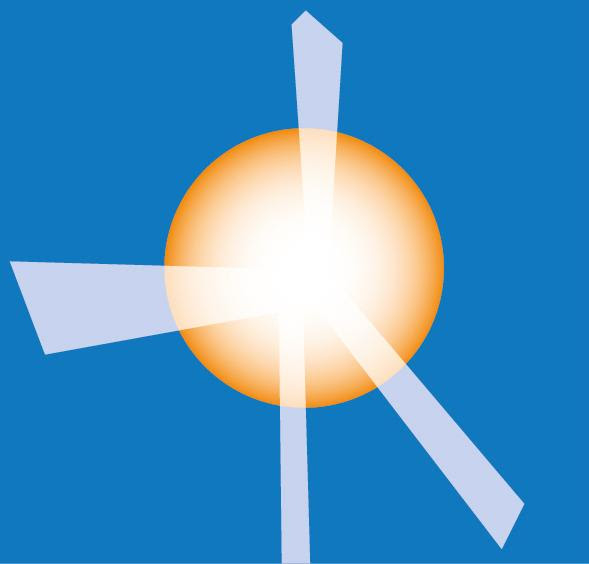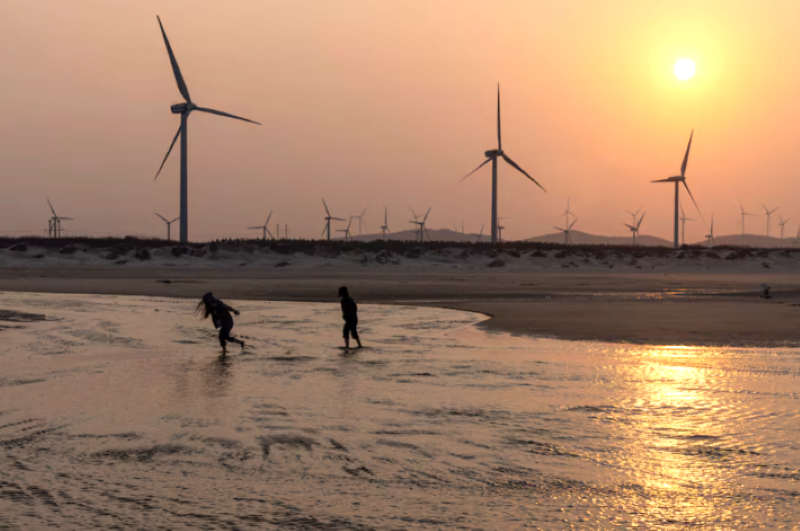For Immediate Release: July 17, 2024
GEORGIA CONSUMER GROUPS SUE STATE OVER ILLEGAL TERM EXTENSIONS FOR UTILITY REGULATORS, WHO THEN APPROVED HIGHEST-EVER ELECTRIC BILL INCREASES
Attorneys: Georgia Violated State Constitution with HB-1312, Which Unilaterally Blocked Public Service Commissioner Elections and Allowed Sitting Members to Rubberstamp Controversial Utility Bill Hikes, the Highest in State History.
ATLANTA, GA – JULY 17, 2024 – Georgia consumer groups filed a major lawsuit against the State of Georgia [AF1] in federal court, alleging Georgia lawmakers violated the state’s constitution by unilaterally postponing Georgia Public Service Commission (PSC) elections. According to the lawsuit, the PSC election’s unlawful postponement allowed the sitting commission members to rubberstamp the largest utility rate increases in Georgia history and grant utility companies the authority to charge Georgians for cost-overruns and mishaps. The groups argue that the charges may not have been passed onto consumers if elections were held as regularly scheduled.
House Bill 1312, which Georgia legislators passed in April, delays the election of new PSC members until at least 2025, giving multiple sitting PSC members an extra two years in office. Georgia’s constitution requires that PSC terms shall be six years, and therefore cannot be lengthened without a constitutional amendment. All PSC members have had their office terms extended to eight years, and one nine years as a result.
The lawsuit, filed by Georgia based attorneys Bryan Sells and Lester Tate on behalf of plaintiffs Georgia WAND and Georgia Conservation Voters, follows the U.S. Supreme Court’s denial of the plaintiffs’ petition for the court to review the 11th Circuit’s decision in Rose v Raffensperger.
Kimberly Scott, plaintiff and executive director of Georgia WAND, said: “The illegal postponement of PSC elections in Georgia is an attack on our constitutional right to vote and the state’s constitutional mandate to hold statewide elections within the time frame governed by the law. This lawsuit will show that Georgia lawmakers have made de facto regulatory decisions that are harmful to the state instead of adhering to our constitution. Let the people vote!”
Brionté McCorkle, plaintiff and executive director of Georgia Conservation Voters Education Fund, said: “Georgians are fighting every month to stay ahead of rising costs for food, housing, and now energy. These aren’t optional costs. They’re things we need to survive. Public Service Commissioners like Tricia Pridemore, Fitz Johnson, and Tim Echols have allowed Georgia Power to take money out of the pockets of hard-working Georgians - and it has to end.”
In May, the plaintiffs along with four other prominent Georgia consumer groups released a report, Plant Vogtle: The True Cost of Nuclear Power in the United States. The analysis detailed how the U.S. Department of Energy, Georgia Power, and the Georgia Public Service Commission (PSC), conspired to force Georgians into purchasing the most expensive electricity in the world, costing ratepayers $10,784 per kilowatt, compared to $900 to $1,500 per kilowatt (KW) for wind or solar. Recent Georgia Power electricity bills have shown the bill increase to be in the 30-40% range.
Additional Key findings in the May Vogtle report included:
-
Plant Vogtle allowed Georgia Power to expand its rate base, the assets on which they earn a guaranteed rate of return, by over $11 billion. Yet their share of Vogtle is 1,020 megawatts, making it the most expensive electricity in the world at $10,784/KW. Normal (wind, solar, natural gas) generation prices range from $900 to $1500/KW.
-
Vogtle Units 3 & 4 took 15 years to build and cost $36.8 billion, well over twice the projected timeline and cost.
-
Vogtle independent construction monitors documented that Georgia Power provided materially false cost estimates for at least ten years, falsehoods used to justify expanding Plant Vogtle. Similar false cost estimates sent South Carolina utility executives to jail for that state’s failed nuclear plant, which started construction at the same time as Plant Vogtle.
Patty Durand, consumer advocate, founder of Cool Planet Solutions and a recent candidate for the Georgia PSC, said: “Again and again, the Georgia Public Service Commission (PSC) was warned about the astronomical cost of the Vogtle reactors and the financial toll it will bear on Georgians for decades to come. Commissioners repeatedly declined to protect ratepayers from cost overruns and ignored PSC staff recommendations to cancel the project. People went to prison for actions like this in South Carolina, yet we have had no accountability for the same, and worse, behavior here. Instead, the state legislature decided to shield current commissioners from facing voters by delaying PSC elections indefinitely. This is clearly unconstitutional. This is un-American.”
EDITOR’S NOTE:
The lawsuit, injunction filing and an embeddable recording of the GA Lawsuit news event are available at GAWAND.org.
###
GCV Education Fund
Georgia Conservation Voters Education Fund mobilizes Georgians to advance climate and environmental justice for a more just and sustainable future.
Georgia WAND
Georgia WAND (Women’s Actions for New Directions) Education Fund Inc. is a non-profit advocacy group focused on quality-of-life issues, health hazards resulting from nuclear energy and weapons, and social justice grounded in building racial equity.
=================
https://www.ajc.com/politics/law-further-delaying-georgia-psc-elections-is-unconstitutional-new-lawsuit-claims/NGSMMLKYTVFVFMOPZFZDTQV2DM/
Lawsuit alleges Georgia law delaying PSC elections is unconstitutional
Plaintiffs argue new law moving utility regulator elections to 2025 and beyond violates due process rights and ask the court to order that elections be held as soon as possible

Credit: Miguel Martinez
Georgia Public Service Commissioner Lauren McDonald (second from right) addresses at a commission meeting on May 16, 2023.
By Drew Kann
1 hour ago
It has been almost four years since voters last had a chance to choose who represents them on the Georgia Public Service Commission (PSC), the five-member body that regulates Georgia Power and the state’s other investor-owned utilities.
In 2022, elections for two commission seats were postponed by a long-running voting rights case that is still winding its way through the courts. Then, this March, the Georgia General Assembly passed a bill — which was later signed into law — further delaying elections until 2025 and beyond.
Now, a voter and two environmental groups have sued in an attempt to block the new law and force Georgia to hold PSC elections as soon as possible.

Credit: Drew Kann
PSC District 4 Commissioner Lauren "Bubba" McDonald (right) speaks during a final vote on Plant Vogtle's expansion costs on Tuesday, December 19, 2023, as PSC Chairman Jason Shaw (left) looks on.
The lawsuit was filed Wednesday in U.S. District Court in Atlanta against Secretary of State Brad Raffensperger, Georgia’s top elections official. The three plaintiffs in the case are Brionté McCorkle, Georgia Conservation Voters (GCV) Education Fund, Inc. and Georgia WAND Education Fund, Inc.
Both GCV Education Fund and Georgia WAND are climate and environmental justice-focused nonprofits. McCorkle is a Georgia voter and executive director of GCV, who is also a plaintiff in a separate case challenging the state’s rules for electing PSC commissioners statewide.
The law challenged by the plaintiffs, previously known as House Bill 1312, passed the Georgia House along party lines, 93-66. Some Democrats supported the measure in the Senate on a 43-9 vote. Gov. Brian Kemp signed the bill into law in April.
Before elections were halted in 2022, PSC commissioners served six-year, staggered terms.
But the delays triggered by the voting rights case disrupted that cadence, leading legislators who were behind HB 1312 to reshuffle the schedule. Republican backers of the bill said the “reset” of commissioners’ terms was needed to ensure no more than two PSC seats were up for reelection in a single year.
The result is that two years or more were added to the terms several PSC commissioners are currently serving.
The Georgia Constitution states PSC commissioners are elected to six year terms. The plaintiffs argue that can only be changed through a constitutional amendment, and because the legislature did not approve an amendment, they argue HB 1312 violates the state Constitution. The complaint also says the new law deprives the plaintiffs of due process as guaranteed by the Fourteenth Amendment to the U.S. Constitution.
Bryan Sells, the lead attorney representing the plaintiffs, said their challenge to the law is “very simple.”
“The only thing you really need to understand is that the Legislature cannot, by statute, amend the Constitution,” he said in an interview.
The plaintiffs also filed a preliminary injunction Wednesday seeking to block Raffensperger from implementing the law and to force him to call elections for three of the PSC seats “as soon as practicable.”
Their request asks the judge to require elections for PSC Vice-Chairman Tim Echols’ District 2 seat, the District 3 seat belonging to Commissioner Fitz Johnson and the District 5 post held by Commissioner Tricia Pridemore. Elections for the District 2 and 3 seats are not scheduled until November 2025, and District 5 would not appear on ballots until November 2026.
If the judge agrees with the plaintiffs’ arguments, how quickly elections could be called will be up to the court to decide, but Sells said they intend to ask for one or more to be held this year. The next general election for many state and federal offices, including the presidency, is scheduled for Nov. 5.
“Certainly there’s no reason to wait until November of 2025 to hold these elections, which is what HB 1312 does,” Sells said.
Raffensperger’s office did not immediately respond to a request for comment.
The challenge to the PSC election law comes in the wake of several major regulatory decisions the commission has made concerning Georgia Power, the state’s largest electric utility.
Late last year, the PSC cleared Georgia Power to collect most of the remaining cost of the long-delayed and over-budget new nuclear reactors at Plant Vogtle from customers. That decision has led to a sharp rise in the price Georgia Power customers pay for electricity, with the largest chunk hitting customers’ bills in June.
For a residential customer using 1,000 kilowatt-hours of electricity a month, Georgia Power estimates Vogtle’s costs will lead to a cumulative increase of $14.38 in their monthly bills. Customers that use more electricity and others on different plans could see much larger jumps in their bills.
Earlier this year, the commission also signed off on a deal allowing Georgia Power to expand its reliance on oil and gas to generate electricity and add battery storage to its system.
Meanwhile, more major cases are on the horizon. Next year, the PSC is expected to vote on cases involving Georgia Power’s long-term energy plans and the rates the company charges. Oral arguments in a controversial test of Georgia’s eminent domain laws are also set for next month.
The complaint doesn’t directly challenge any of the PSC’s past decisions, but McCorkle, one of the plaintiffs in the lawsuit, said she believes the current commission has been a “rubber stamp” for Georgia Power and elections are needed to hold them accountable.
“If there is no change on the commission, I can say with confidence today, they will absolutely vote to raise rates,” McCorkle said. “This is why we have to have an election.”
The PSC’s executive director, Reese McAlister, said he disagreed with the “rubber stamp” label, adding in a statement that all commission hearings are broadcast publicly and are available on the PSC’s website “to ensure accessibility and transparency.”
PSC Chairman Jason Shaw declined to comment on the litigation, but said, “the commissioners will follow any law passed by the General Assembly or ordered by the courts.”
Commissioners Johnson and Pridemore also declined to comment, citing the lawsuit. Echols and Commissioner Lauren “Bubba” McDonald did not immediately respond to requests for comment.
-Staff writer Mark Niesse contributed to this report.





























 by
by 






